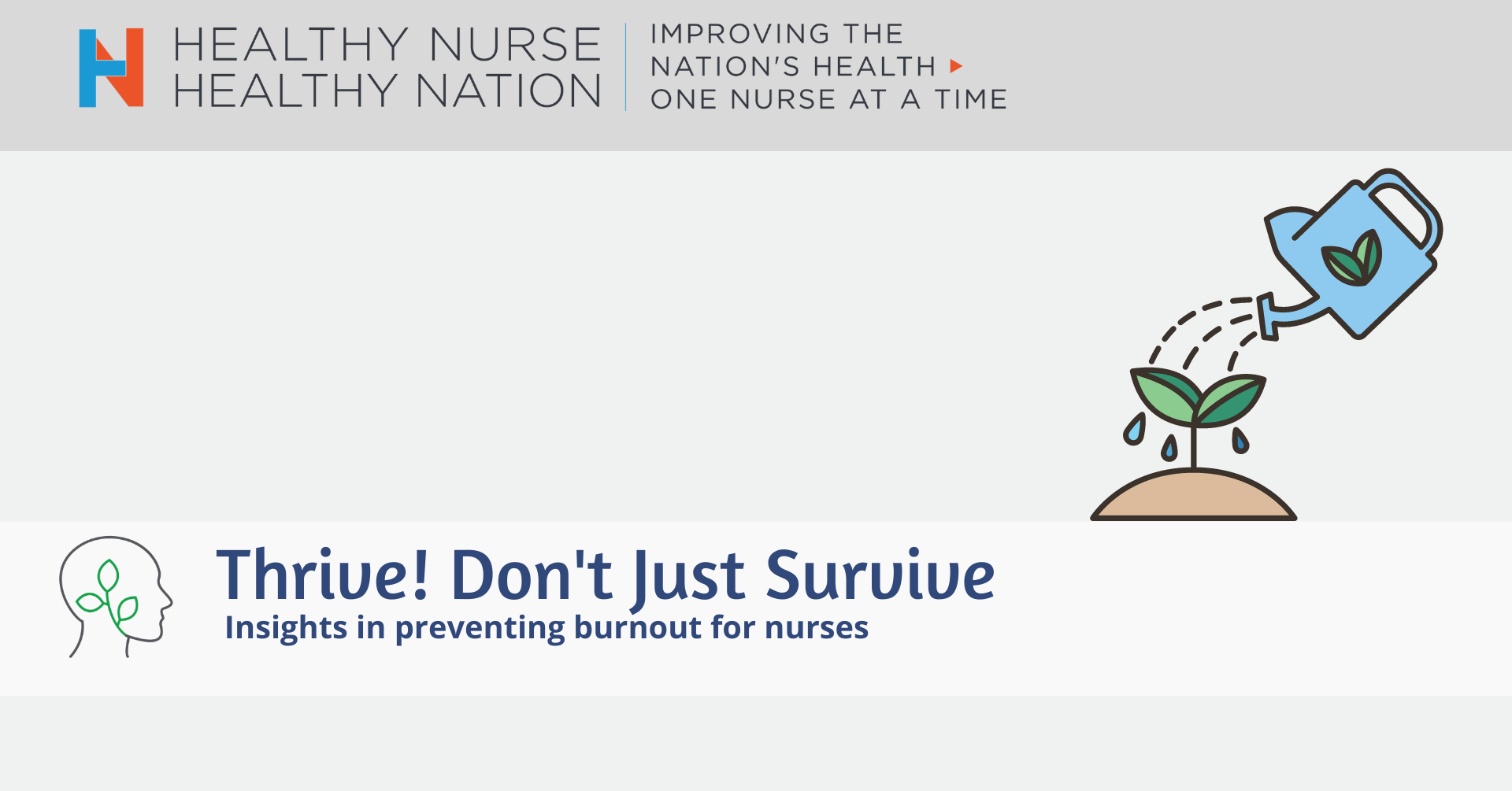Thrive, Don’t Just Survive!
Guest blogger, Terri Bogue, MSN, RN, PCNS-BC, co-author and developer of both the website and book entitled Extinguish Burnout, shares some insights in preventing burnout in the nursing profession.
 There’s more than one way to avoid burnout. For this blog, we define burnout as the perception that you cannot change your environment and thus have no personal agency (your ability to get things done). One approach to burnout prevention is ensuring that your personal agency never drops to a low level.
There’s more than one way to avoid burnout. For this blog, we define burnout as the perception that you cannot change your environment and thus have no personal agency (your ability to get things done). One approach to burnout prevention is ensuring that your personal agency never drops to a low level.
Additionally, you can continually develop, enhance, and increase your personal agency so that running out of it is not a primary concern. Both can accomplish the goal of avoiding burnout, but the second leads towards thriving, not just surviving.
Black holes are something of a mystery in astrophysics. However, some properties, like their intense gravity, are well-accepted. If you consider the idea of being close to burnout similar to being close to a black hole, it’s easy to perceive burnout as trying to suck you in. The closer you get to burnout, the harder it is to get away from it. Even outside the grips of burnout, the pull can be powerful. The converse is also true: the further you are from it, the easier it is to stay away.
As nurses, the desire to be helpful and caring for others can keep us skimming along the bottom of our personal agency reserve, hovering dangerously close to burnout. The more capacity we retain to help others in their times of need, the more powerful we become at avoiding our own burnout and helping others avoid it through substantial inflows of support. While our desire to be compassionate would tend to drive us to giving as much as possible, thereby keeping our personal agency low, the better response may be to make judicious allocation of our resources to help grow our personal agency, not deplete it.
When you’re operating with a reserve capacity, momentary heavy demands can easily be accommodated. When you have high reserves of personal agency and you recognize that demands are too high for positive results, then with support and self-care, you can make gradual changes to bring the system in balance. Instead of reaching burnout and cutting off all external commitments, you can whittle down external commitments slowly until everything “just works.” When you’re almost at the bottom of your personal agency, you don’t have the luxury of slow, subtle changes. You must make changes quickly and completely to escape the pain of burnout.
The compassionate response when someone is in need around you seems like it should always be to help. For example, in our office, there’s a stoplight hanging by our desks. It’s a real, full-size, functional stoplight. It’s designed as a visual reminder that just because you can do something doesn’t mean you should do something. “Can do” items are yellow lights. “Should do” items are green lights – and “shouldn’t do” items are red lights. Just because you can be compassionate and help someone doesn’t mean you should. Perhaps they need to struggle for a while longer. Perhaps there is someone else who needs to become motivated to help them. Perhaps supporting them puts you and your situation too much at risk.*
There’s one other important consideration for when you can help but maybe shouldn’t. Sometimes there exists a trade imbalance. You can do something, but the hardship of doing so is greater than the value the other person will place on the action. In these cases, the right answer may not be extending yourself. In these cases, the right answer might be to save more resources for yourself and to fill your personal agency to the point where you can experience thriving.*
*Editor's note: Please note that when nurses are on duty or on call, there will be many instances when saying "no" or refusal to assist are not options.
Take a look at my YouTube video here and more nurse burnout resources here. Read the next blog in this series, Managing Demands And Preventing Burnout.
Find this helpful? Share this blog with a nurse you know by using the social share links on this page.
Reviewed 2/17/22
Have you joined the Healthy Nurse, Healthy Nation (HNHN) Grand Challenge yet? Join us today!



Post a Comment or Question